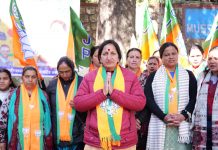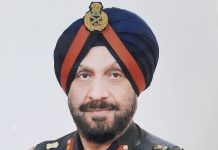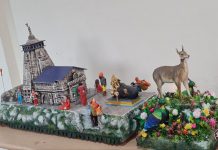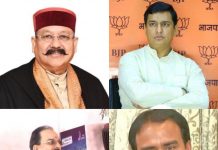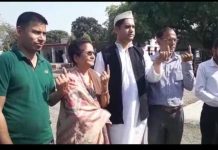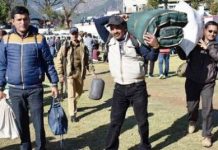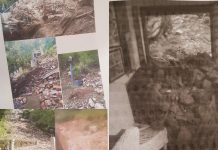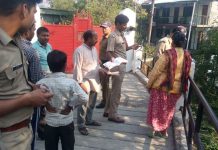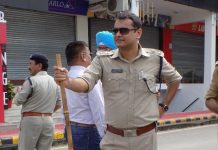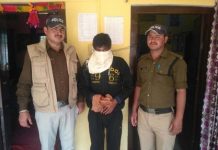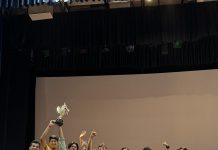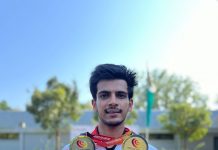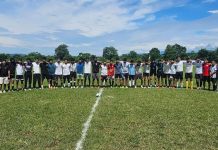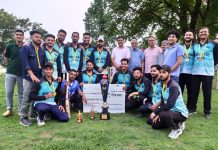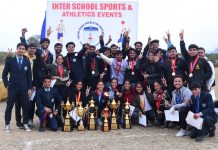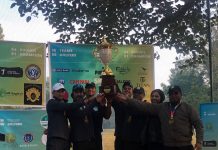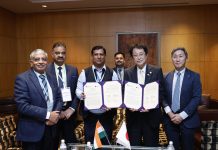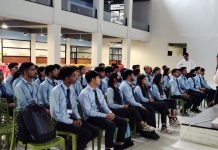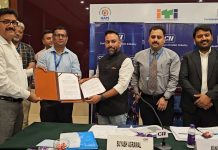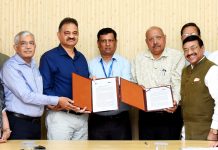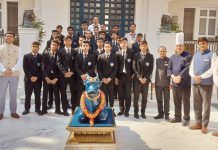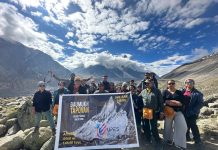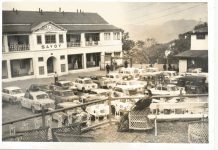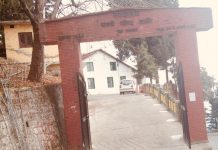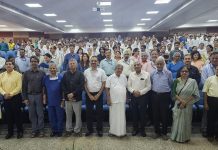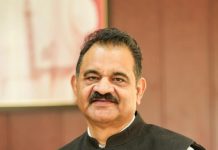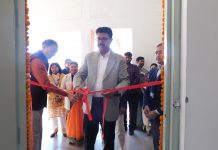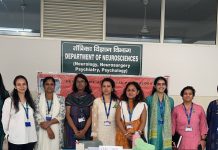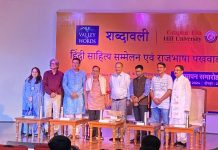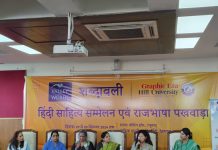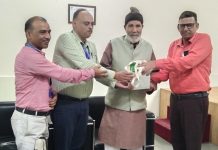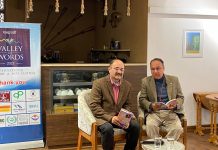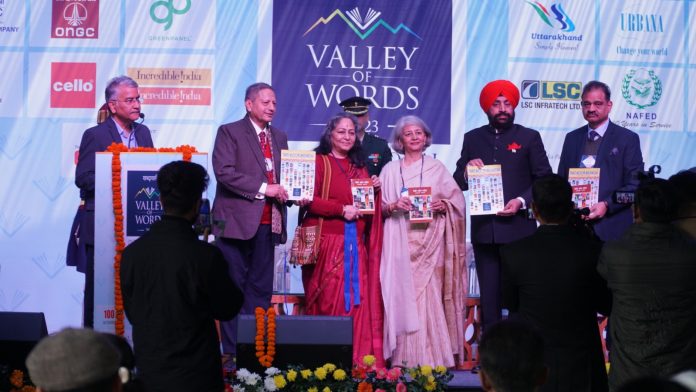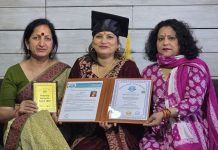Dateline Dehradun: A bright December winter morning brought in the 7th edition of Valley of Words|Shabdavali 2023 as this year’s Festival began with a poignant rendition of the national anthem performed by the differently-abled students of the Bajaj Institute of Learning. Anoop Nautiyal welcomed the Hon’ble Governor of Uttarakhand Lt. Gen Gurmit Singh, PVSM, UYSM, AVSM, VSM (Retd) who presided over the dais for the launch of two books: Gajju Chalne Laga by Anita Bhatnagar Jain and Administration in India by IAS officer couple Ashish Srivastava and Iva Srivastava including special editions of Shabdavali Smarika featuring a collection of 15 Hindi book reviews across genres and the 40 critical analyses of the annual VoW edition of The Book Review.
The Hon’ble Governor’s speech engendered cheers from the young students in attendance. Highlighting the enduring value of tradition within the festival, his emphasis on the vital role of words to build bridges of connection resonated: “Harness the power of your words, and realize your self worth!” The echoes of applause continued as the efforts and hard work of the Indian military service were appreciated. This was followed by Festival Director Sanjeev Chopra’s introduction of VoW’s work and efforts stemming from Dehradun.
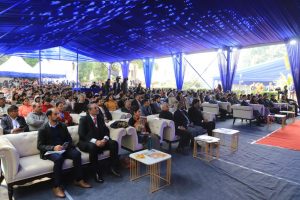
The vibrant atmosphere continued with the Village Square featuring a Book Launch, Community Game, and Exhibition, all coordinated by Sristhee Sethi. In a simultaneous session, the book Dinank Ke Bina brought forward the reflections of VoW Awardee Usha Kiran Khan in conversation with Sushil Upadhyay, Someshwar Pandeya and Sarishma Dangi; through Gandhian ideology and the importance of rooted language, she spoke about her own journey and the perils of male dominance in a two-faced society: “Humein relief nahin, haq chahiye.” A little while later, an entrancing discussion for the book Kanyadaan: The Bride translated by VoW Awardee Lalit Kumar reiterated the importance of not treating the educated and the uneducated like a dichotomy. Chaired by Surekha Dangwal with Radhika Jha as Discussant, the session closed on the note that the vibrancy of the Indian spirit exists on a varied spectrum that celebrates vitality, where diversity thrives rather than one side being sidelined by the other.
The afternoon brought a cultural jamboree with “Iti Natya” and “Iti Nritya”, featuring performances like “Aikyam: One Earth, One Family” from Doon International School, curated by Jyoti Dhawan, and a Kathak performance by Shubhatrayee Satwe under the guidance of Shalini Rao. Literary connoisseurs were in for a treat with the launch of Sylhet to Shillong: The Story of the Last IGP of Undivided Assam by Bijoya Sawian, and a tribute to the legendary Doon resident Raj Kanwar. VoW Awardee Mandira Shah spoke about her book Children of the Hidden Land and how the sensitive north-eastern region of the subcontinent is still not discussed as a full part of India. Chair Pooja Marwah and Aarohi Bhattacharya and Aayan Azmi from the TonsBridge School discussed with the author how location shapes character, and Mandira also talked about her writing process, themes, character-building through names — and in a Rapid Fire rebound — the fact that her instant happiness comes from her young daughter.
The evening’s Mushaira curated by Dr S Farooq and sponsored by Tasmia Academy witnessed the best of ‘shaayari ka mahaul’. Sheher se Dus Kilometer by VoW Awardee Neelesh Raghuvanshi tackled the enduring plight of farmers, echoing Munshi Premchand’s timeless concerns, while simplifying the Bundelkhandi language for accessibility to rouse interest among readers in a session chaired by Ram Vinay Singh. The day concluded with No Way In by VoW Awardee Udayan Mookerjee with Ratna Manucha and Satish Aikant discussing how difficult it is for minorities to find success in larger society: “If you miss the first few rungs of the ladder, it is not impossible — but very difficult to catch up.” Polite-society hypocrisies are visible in how we say we feel pained by the miserable lives of our workers, but don’t take enough concrete actions to rectify their situations.
A particularly insightful session based on the exhibition ‘Evam Vadati Pustakam’ delved into the essence of manuscripts. Discussants included Shyam Saran, Sudha Gopalakrishnan, Abhinav Kumar, and Lokesh Ohri; all of them universally agreed on physical constraints in terms of the survival of the manuscripts, and the crucial role of open discourse in fostering trust in their translated voices. This broad-ranging session ended with a deliberation on how the same text can be open to multiple interpretations.
Notably, VoW remains its true self – free and open to all. The evening was brought to a magical end with an hour long musical soiree by two young talents from ITC, Sangeet Academy Ashis Paul and Swarnendu Mondal. As the curtains dropped on Day 1, attendees dispersed with memories of community, laughter, and the promise of more delights tomorrow. The Festival has set the stage for a memorable celebration of literature, bringing together authors, thinkers, and enthusiasts in a joyous celebration of the written word. To all readers, students, academics, and fellow travelers – VoW welcomes you to become part of this vibrant symphony of voices, this literary feast for all senses, and celebration of the human spirit that resounds to spread the word—and beyond!

